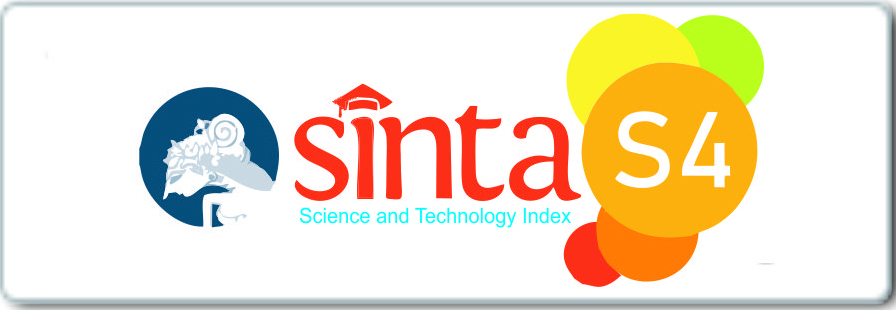Encouraging Mothers for Routine Pediatric Dental Check-Up Through Cadres Empowerment Program
Downloads
Background: Oral and dental hygiene is essential for physical health and well-being, and it can affect speech, mastication, and self-confidence. Children under five are not able to brush their teeth independently, do not have manual dexterity and psychological maturity to understand the importance of maintaining oral health. Therefore, parental role, especially maternal role, is critical in maintaining children's dental and oral health. An epidemiological study under Kalijudan Public Health Center coverage revealed that maternal parenting style significantly affected dental and oral health care in children per caries severity index using def-t. A promotional program was needed to strengthen the maternal perceived control domain to promote dental and oral health in children. The "SEKOLAH KADER” program was intended to train health cadres in disseminating dental health information and assisting mothers in child dental and oral health care. Purpose: To increase cadres' knowledge levels about pediatric dental and oral care through "SEKOLAH KADER.” Upon program completion, the cadres were expected to help to disseminate dental health information and assisting mothers in terms of child dental and oral health. Methods: The program involved 6 cadres from 3 local Integrated Health Centre. The program material was distributed in hard and soft copies. Results: The paired t-test showed a significance value of 0.018 (p <0.05). This indicates that there was a significant increase from pre-test to post-test evaluation results. Conclusion: This program has succeeded in increasing cadres' knowledge levels about basic dental health care.
Jain M, Bharadwaj SP, Kaira LS, Bharadwaj SP, Chopra D, Prabu D, et al. Oral health status and treatment need among institutionalised hearing-impaired and blind children and young adults in Udaipur, India. A comparative study. Oral Health Dent Manag. 2013 Mar 1;12(1):41–9.
Indirawati NT, D.A M. Penilaian Indeks Dmf-T Anak Usia 12 Tahun Oleh Dokter Gigi Dan Bukan Dokter Gigi Di Kabupaten Ketapang Propinsi Kalimantan Barat. Media Litbangkes. 2013;23(1 Mar):41–6.
Peter S, Yenny S. Kamus Bahasa Indonesia Kontemporer. Jakarta: Modern English Press; 1991.
Stoll FA, Catherman JL. Dental Health Education. 4th ed. Philadhelphia: Lea&Febiger. 1972. pp 91133.
Djuwita I, Sridadi. Pendidikan Kesehatan Gigi. Jakarta: Departemen Kesehatan Republik Indonesia. 1993. pp 1–4.
Herijulianti E. Pendidikan Kesehatan Gigi. Jakarta: Penerbit Buku Kedokteran EGC. 2002.
Mani SA, Aziz AA, John J, Ismail NM. Knowledge, Attitude and Practice of Oral Health Promoting Factors among Caretakers of Children Attending Day-Care Centers in Kubang Kerian, Malaysia: A Preliminary Study. Journal of the Indian Society of Pedodontics and Preventive Dentistry. 2010. 28(2): 78-83.
Kementrian Kesehatan Republik Indonesia. Promosi Kesehatan di Daerah Bermasalah Kesehatan Panduan Bagi Petugas Kesehatan di Puskesmas. Jakarta: Pusat Promosi Kesehatan Kemenkes Republik Indonesia. 2011.
Widyawati. Pengaruh Penyuluhan Kesehatan terhadap Pengetahuan dan Sikap Siswa Sekolah Dasar dalam Pencegahan Demam Berdarah Dengue di Kecamatan Medan Denai. Universitas Sumatera Utara. 2010. pp. 19-21.
Ambar TS. Kemitraan dan Model-Model Pemberdayaan. Yogyakarta: Graha Ilmu. 2004. pp 80-81.
This is an open access journal, and articles are distributed under the terms of the Creative Commons Lisence, which allows others to remix, tweak, and build upon the work non-commercially, as long as appropriate credit is given and the new creations are licensed under the identical terms.
Copyright notice:
IJDM by UNAIR is licensed under a Creative Commons Atribusi 4.0 Internasional.
- The journal allows the author to hold the copyright of the article without restrictions.
- The journal allows the author(s) to retain publishing rights without restrictions.
- The legal formal aspect of journal publication accessibility refers to Creative Commons Attribution (CC BY)
















